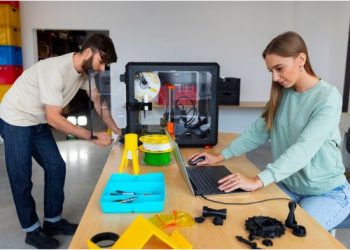Smart homes have come a long way from their humble beginnings. Today, they are a pinnacle of modern technology, offering convenience, security, and energy efficiency. Let’s dive into how smart homes have evolved over the years.
The Beginnings
The concept of smart homes started in the early 20th century with basic home appliances that made life easier, such as washing machines and refrigerators. However, the real journey of smart homes began in the 1970s and 1980s with the introduction of home automation systems. These systems were basic and primarily focused on controlling lights and appliances, laying the foundation for what was to come.
Rise of the Internet Era
The 1990s and early 2000s marked a significant turning point with the advent of the internet. Brands like X10 pioneered the first true smart home devices, allowing homeowners to control their devices over phone lines. However, it was the introduction of broadband internet that truly set the stage for today’s smart homes, making it easier to connect and control devices.
The Smartphone Revolution
The launch of smartphones was a game-changer for smart homes. Suddenly, controlling your home’s devices was as easy as tapping a screen. Companies like Nest, with their smart thermostats, and Philips Hue, with their smart lighting, began to emerge, offering more integrated and user-friendly solutions.
Voice Control and AI
The next big leap came with the introduction of voice-controlled assistants like Amazon Alexa and Google Assistant. These AI-powered systems allowed for hands-free control of smart home devices, making the user experience even more seamless. Today, you can ask your voice assistant to adjust the thermostat, turn off the lights, or even play your favorite music, all without lifting a finger.
The Present and Future
Today’s smart homes are more connected and intelligent than ever. With the integration of IoT (Internet of Things), devices can communicate with each other, creating a truly automated home environment. For instance, your smart alarm clock can signal your smart coffee maker to start brewing your morning coffee the moment you wake up.
Looking ahead, the future of smart homes seems boundless. Innovations like Samsung’s SmartThings are pushing the boundaries, integrating AI to learn from your habits and preferences, making your home not just smart, but truly intelligent.
Conclusion
The evolution of smart homes is a testament to human ingenuity and the relentless pursuit of convenience and efficiency. From simple remote-controlled devices to AI-powered, interconnected ecosystems, smart homes continue to evolve, making our lives more comfortable and our homes more secure. As technology advances, we can only imagine what the future holds for smart homes.









